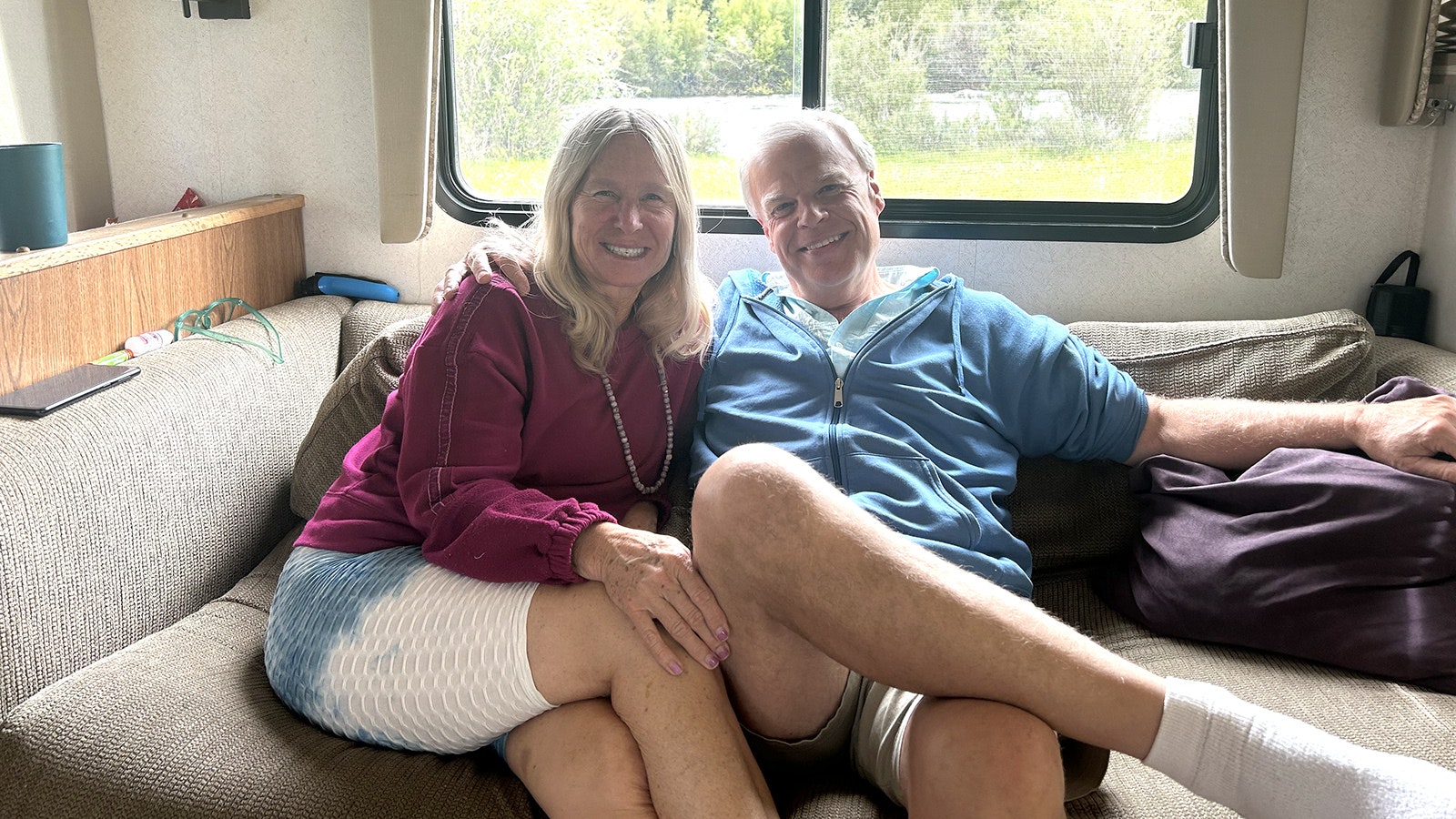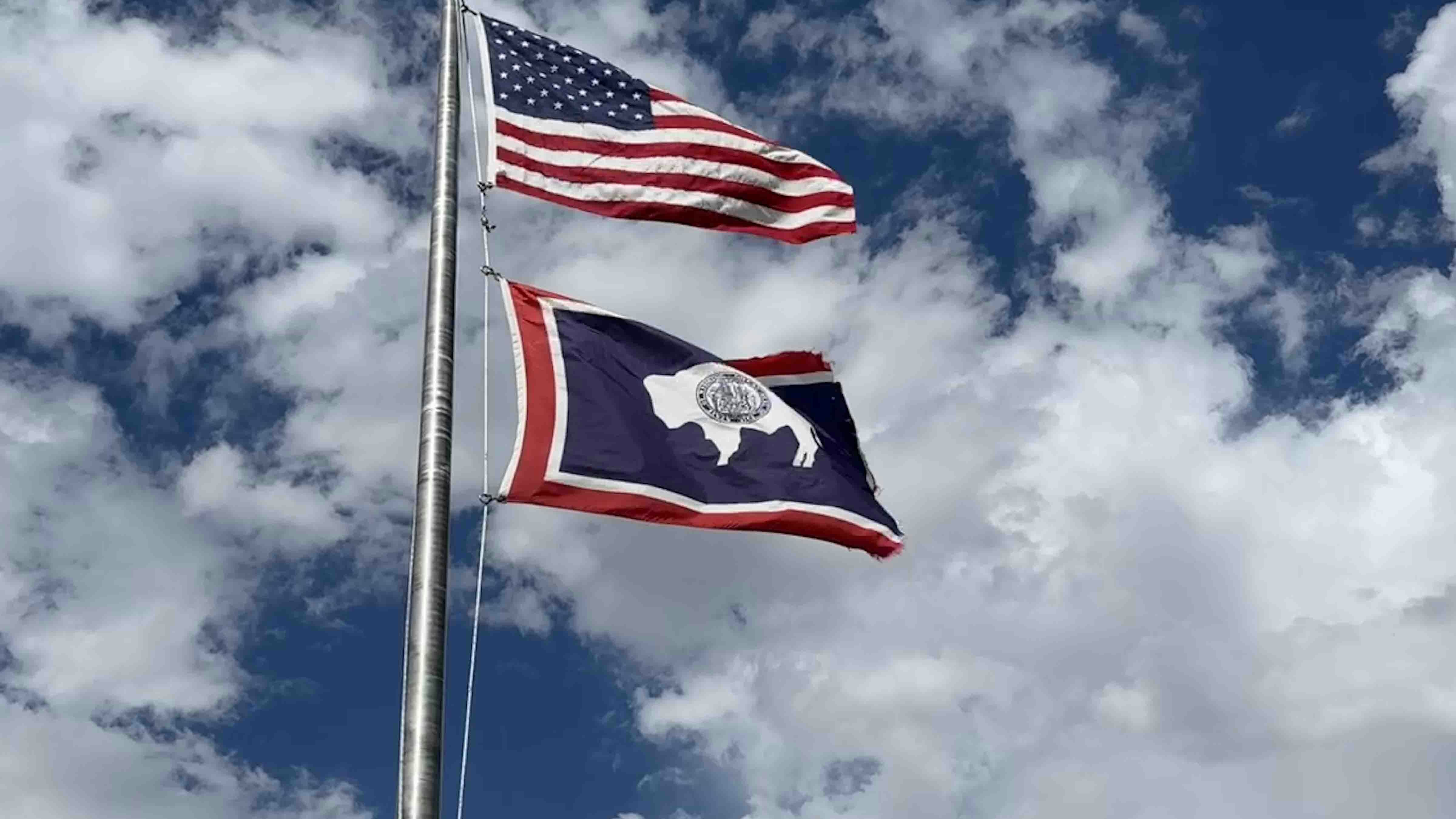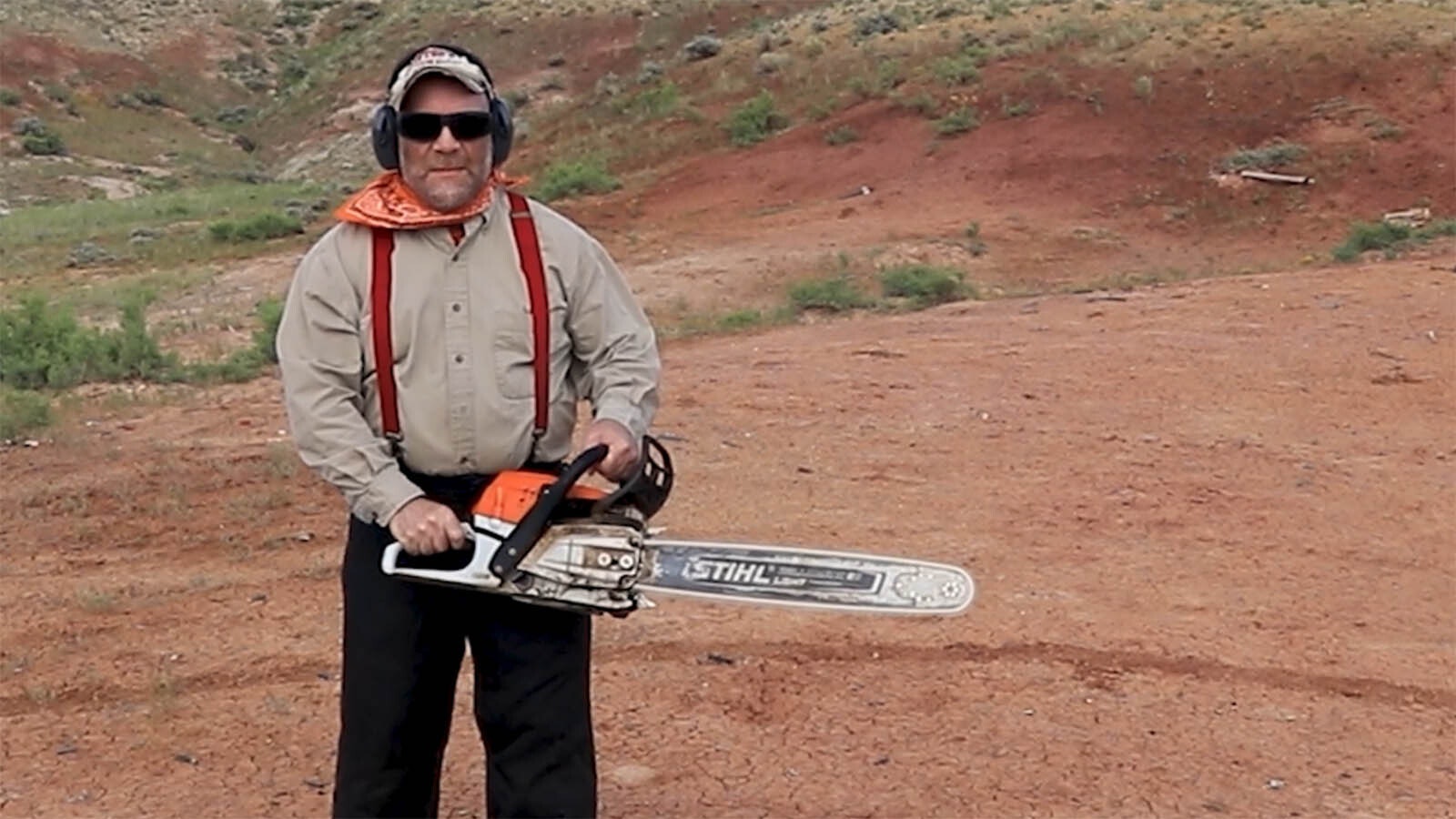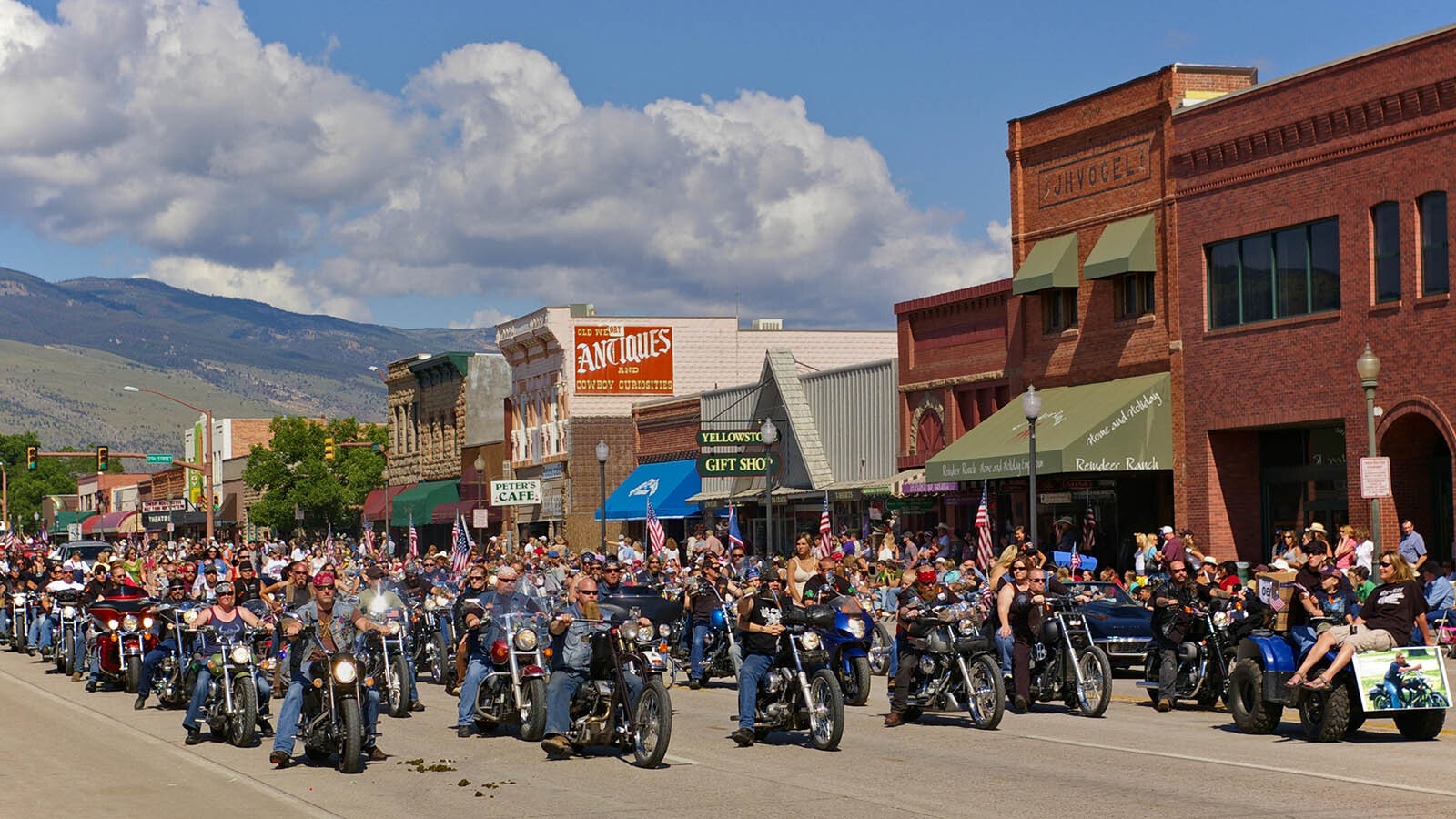Living on about $800 per month, John and Carmen Campa are carefree nomads of the open road.
Their base camp in early June is along the banks of the Green River in Sublette County, Wyoming, about 2 miles upstream from Warren Bridge. The river is running bank full and the grass is nearly knee-deep at this free Bureau of Land Management campground.
Anything free is worth saving up for, and the Campas’ lifestyle is a lesson in economy. But it’s driven more by the satisfaction that comes from living on the cheap than necessity.
A ration of 55 gallons of water lasts the couple two weeks, and that’s about how long they stay in one spot. They have no itinerary, but they are snowbirds. They travel north in the spring, but the appeal of warmer a climate draws them south, generally by mid-October.
Going Off-Grid
The couple got together in 2018. They sold two large homes and bought a used 32-foot motorhome.
They’ve lived in it since.
They stay at an RV resort in Yuma, Arizona, during the winter months and travel the rest of the year. Wyoming is one of their favorite destinations because of its beauty, climate and people.
Yuma is way too hot in the summer and the money they save on the energy it would take to run an air conditioner there allows the couple to seek out the more remote, higher-elevation areas they love.
“Of all the places we’ve stayed, Wyoming really has everything,” said John. “It’s gorgeous, it’s not crowded, and we like to boondock. Plus, the people here are genuine. You go into a restaurant and they bend over backwards for you.”
Plus, people driving motorhomes don’t get flipped off in traffic in the Cowboy State.
“We’re not used to that,” said the 63-year-old retired airline pilot. “Wyoming is like going back in time.”

Learning To Live Simple
The couple groomed this frugal lifestyle during an extended vacation in Vietnam. They spent 18 months traveling around southeast Asia during the COVID-19 pandemic.
They went to Vietnam for a vacation, but after the pandemic broke out and the cost of an airline ticket home rocketed to $4,000, they asked themselves, why not stay?
During their time there they bought a motorcycle, traveled around the region, including Bali and Kuala Lumpur, spent a lot of time on the beach, made friends, attended weddings, parties and became part of a small community.
John said people there live on less than $300 per month. They rented an apartment with an ocean-view balcony for $320 per month and said it was easy to eat on less than $10 per day.
He said Vietnam was locked down for about six weeks during the pandemic and masks were mandatory. But after that it was hassle-free.
Avoiding The ‘Gotta Go’ Mentality
Carmen advises newcomers to the RV lifestyle not to worry so much about getting somewhere new. Be content with where you are and learn the difference between wants and needs.
“The key for newcomers is don’t do those long, six-hour drives,” Carmen said. “It’s too stressful. We are trying to get away from that American hurry-up-and-go mentality.”
At 18,000 pounds gross weight, their Allegro motorhome with a 454 big block Chevy under the hood gets 6 miles per gallon loaded.
They allocate $300 per month for gasoline, and when they reach the limit, they camp until the next pension check shows up in their bank account. They travel about 60 miles to the next camp spot under normal circumstances.
Last summer they camped their way across Wyoming, into Nebraska and on to Iowa, where they visited family. After that they worked their way south through the Midwest and back to Arizona. They enjoy the mountains of northern Arizona around Flagstaff and Sedona.
“We are getting better all the time with being content with where we are,” John said. “It doesn’t make sense to us to travel long distances, spend a lot of money on gas and just put miles behind us without really seeing anything.”
They have a 200 cc motorcycle that fits on a rack on the rear bumper of the motor home. They use the motorcycle to fetch groceries and take other short trips from their camp.
Sometimes they pack it up and spend a night out in their tent.
A Solar-Powered Home On Wheels
Many Americans overlook the amount of free energy that comes from the sun every day. New solar technology has made it possible to power nearly every need, even on cloudy days.
With a pair of 200-watt solar panels, a large lithium battery, a charge controller and an inverter that converts DC power to AC, the Campases run two televisions, a coffee maker, mini refrigerator and other small appliances.
The system will overload if too much is turned on at the same time. And they only use the microwave to warm up food. Thawing out frozen meat would be too much of a power draw, John said.
They adjust their solar panels to follow the sun across the sky each day and John says they can run their TV all night if they want, and by 11 a.m. the next morning the battery will show a full charge if it’s a sunny day.
After two consecutive cloudy days they generally fire up a small generator to recharge the battery.
John is an expert do-it-yourselfer with a solid understanding of electricity, how much wattage each appliance needs, and how to maintain a solar system. He does all of the maintenance on the motorhome himself. As a young man he learned small engine repair and irrigation maintenance working on a municipal golf course owned by his parents.
Once each week they light the water heater and let it run for 21 minutes. That provides enough hot water for two quick showers. In between, they sponge bathe.
John swears by Dawn dishwashing soap for sponge bathing. “It cuts through anything,” he said.
When they leave Sublette County, the couple plans to head for Bear Lake, Utah, with a stopover in Alpine.
“We are both rambling folks,” he said. “We have no real plan, we just wing it.”





